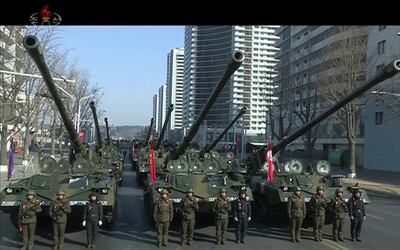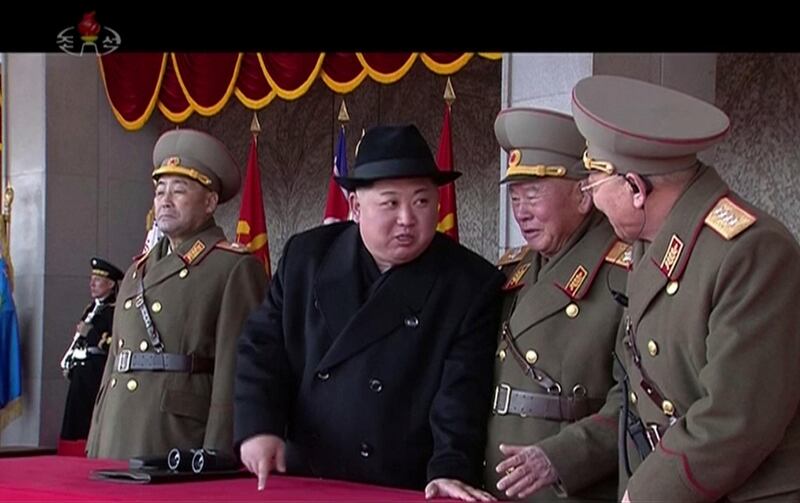South Korea is monitoring developments within the North's armed forces, it said on Monday after reports that Pyongyang had replaced three of its top military officials ahead of a summit with the United States.
President Donald Trump is due to meet North Korean leader Kim Jong-un on June 12 in Singapore and Pyongyang's nuclear arsenal will be high on the agenda.
Reports said the reshuffle could be aimed at eliminating resistance to the peace overtures.
Pyongyang's armed forces, known as the Korean People's Army, are immensely influential in the North and a centre of power in their own right, symbolised by the way Mr Kim is habitually flanked by generals on one side and civilians on the other when attending major ceremonial events.
Late last month the North's state media revealed that Kim Su-gil had been appointed director of the military's powerful General Political Bureau, replacing Kim Jong-gak.
__________
Read more:
US 'continues to actively prepare' for North Korea summit
North Korea top aide lands in Singapore as summit preparations advance
Comment: The only predictable thing about North Korea is its unpredictability
__________
According to Yonhap news agency, which cited intelligence sources, the chief of the general staff Ri Myong-su has also been replaced by his deputy, Ri Yong-gil.
Defence minister Pak Yong-sik has been succeeded by No Kwang-Chol, previously first vice minister, it said.
The wholesale reshuffle would be unusual if confirmed, Seoul's unification ministry said.
"We will monitor related developments," ministry spokesman Baik Tae-hyun said.
According to researchers at NK Leadership Watch, the change at the top of the GPB "represents a continuation of tightening party control over the KPA".
The political bureau could be in a position to resist policy decisions by the leadership or try to profit from future South Korean economic aid, it said.
"Both of these things lend themselves to creating alternate power centres."
But new GPB director Kim Su-gil was a "highly trusted" lieutenant of leader Kim Jong-un, it said, who appointed him to the Pyongyang party committee - once a power base for his uncle Jang Song-thaek - after having the older man executed for treason in 2013.
Reports said the wider changes could be aimed at preventing objections in the North's senior military ranks to any sudden changes in the country's nuclear policy.

Analysts say the personnel change was more likely a response to an internal matter.
"It's meaningless to divide North Korean officials into hardliners and moderates," said Kim Dong-yub, a professor at the Institute for Far Eastern Studies at Kyungnam University.
The personnel change was probably intended to implement the new economy-centred policies, he said, and officials with a better understanding in the area had been appointed.
"It looks like they needed someone who can have a firm grip on the military and dynamically push ahead with the new policies amid changes in US-North Korea relations," he said.
Also on Monday, Russian state news agency said President Vladimir Putin could meet with Mr Kim in the Russian far-eastern city of Vladivostok in September.
Russian Foreign Minister Sergei Lavrov, who visited Pyongyang last week, passed the North Korean leader an invitation from Mr Putin to visit Russia during its Eastern Economic Forum.
The news follows Syrian President Bashar Al Assad's announcement last month that he plans to visit the North Korean leader.





